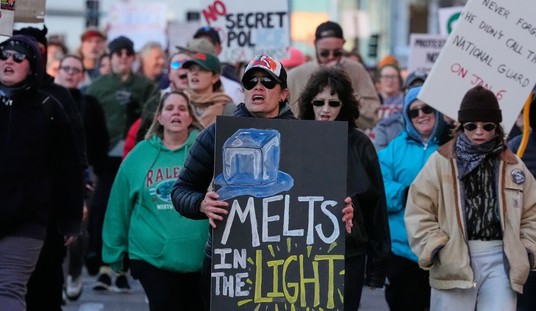As the number of identified coronavirus cases increases across the country even as much of the nation is under significant levels of government-ordered lockdowns, it’s important to bear in mind the full relationship between the economy and public health. Put simply: economic contraction can be bad for your health.
It is likely that President Donald Trump has had this in mind when he advocates getting the nation back to business as soon as is reasonable. “WE CANNOT LET THE CURE BE WORSE THAN THE PROBLEM ITSELF,” Trump tweeted on Sunday night. The president has taken a good deal of heat for pointing out that shutting down the economy could have worse consequences for the nation than the disease itself, even to the point that prominent media figures are advocating that TV networks censor his White House briefings. Both common sense and the available evidence support Trump’s position.
A March 2016 paper in the scientific journal Current Epidemiological Reports examining this very question in regard to the Great Recession of 2007-2009 found that the economic contraction was bad for people’s health, and not just those who lost their jobs:
Our review suggests that the macro- and individual-level sequelae of the Great Recession were associated with declining fertility and self-rated health and increasing morbidity, psychological distress, and suicide, whereas traffic fatalities and population-level alcohol consumption declined. The Recession appears to have impacted the health not only of those who personally suffered job, income, or housing loss, but of the population as a whole. Associations were often strongest among men and racial/ethnic minorities. In Europe, socioeconomic inequalities in some health outcomes seem to have widened.
While pointing out the need for further research and cautioning against overstating their conclusions, the authors also note data from those countries would probably buttress the overall point about the harm economic contractions have upon people’s health: “The current review excludes research from developing nations, yet it is possible that the health effects of the Recession may have been greater in these countries, where the financial market meltdown resulted in a crisis of ‘food, fuel, and finance.’”
A paper in published in JAMA (the journal of the American Medical Association) in March 2018 examines the likely causal connections:
Historically, long-run improvements in health have been tied to economic growth through 3 broad mechanisms: better nutrition, enhancements in public health infrastructure (such as sanitation and cleanliness of water supply), and more effective medical technology (such as antibiotics and vaccines). The results of many studies exhibit this familiar wealth-health connection, both across nations and within them. Citizens of nations with higher average incomes tend to live longer and, despite that, experience fewer years of disability. Women in higher-income nations have lower rates of anemia. Babies born in those countries have higher birth weights.
Of course, it makes sense that people in wealthy, developed nations would have better health than those trapped in poorer countries, and in fact it’s rather obvious. The same is true within countries, the paper’s authors note:
Within countries, people with higher incomes also tend to live longer. Children growing up in wealthier households are healthier. Infant and childhood mortality, as well as childhood illness rates, are lower. Lives lengthened in Japan after its economic booms in the 1960s and 1970s. Lifespans fell during the Great Depression. A recent study of US recessions and mortality from 1993 to 2012 by Sarah Gordon, MS, and Benjamin Sommers, MD, PhD, also found that a slowing economy is associated with greater mortality. According to their work, lower income and greater poverty are more strongly associated with higher mortality rates than is the unemployment rate.
All this data is a matter of correlations, not proof of a direct causal relationship, and much research remains to be done. Still, it makes sense that people with better incomes have better health care. In addition, both these papers, among many others, note that short-term recessions do not necessarily harm people’s health and in fact can be associated with countercyclical improvements in public health. That happens for a variety of reasons which we need not consider here, but the important point is that the coronavirus panic is likely to have long-term economic effects if the lockdowns remain in place for more than a month.
Such an outcome is by no means a fantasy. The direct cost to the global economy could be as much as $2.7 trillion. Europe just experienced its largest decrease in business activity since statistics have been collected (beginning in 1998), a worse collapse than during the Great Recession. Most ominously, the wish-list of long-term, job-killing economic and social restrictions House Speaker Nancy Pelosi (D-CA) has tried to attach to the proposed coronavirus economic stimulus package would cripple the economy for years to come. As the studies indicate, that would surely harm people’s health.
No one in his or her right mind wants to neglect the danger that coronavirus poses to the population, especially the elderly. In making public policy, however, lawmakers should consider the full effects of the legislation they craft and the messages they send to the public. Closing down the economy for an arbitrary or extended period would likely decrease the overall public health—the very thing their policies are intended to avoid.
S.T. Karnick ([email protected]) is a research fellow and director of publication at The Heartland Institute.













Join the conversation as a VIP Member